- El Clúster de Cambio Climático, impulsado por Forética y compuesto por 77 grandes empresas -encabezadas por Bankinter, Chiesi, Grupo Cooperativo Cajamar, ENGIE, IKEA, LafargeHolcim, Naturgy y Nestlé-, identifica los seis ejes fundamentales de acción climática desde la perspectiva empresarial, basados en el compromiso con las cero emisiones netas, el Alcance 3, la neutralización, las energías renovables y la electrificación, el riesgo climático y la visión holística de los retos ambientales
- Como datos relevantes, el documento publicado por Forética en el marco del Clúster destaca que el 63% de las empresas analizadas han establecido su objetivo de cero emisiones netas para 2050 o antes y el riesgo vinculado al cambio climático es identificado por casi el 80% de las empresas
- En 2021, desde el Clúster de Cambio Climático se ha trabajado en entender cuál es el punto de partida de las empresas que lo componen e identificar su grado de compromiso, desarrollo y contribución a los objetivos establecidos la Ley de Cambio Climático y Transición Energética y la Estrategia de Descarbonización a Largo Plazo 2050
Forética presenta el informe ‘Cero emisiones netas: Las empresas en España ante el reto de la descarbonización’, publicado en el marco del Clúster de Cambio Climático, liderado por Forética y compuesto por 77 grandes empresas, encabezadas por Bankinter, Chiesi, Grupo Cooperativo Cajamar, ENGIE, IKEA, LafargeHolcim, Naturgy y Nestlé.
El documento presenta las seis claves en la senda de descarbonización del sector privado: el compromiso con las cero emisiones netas, el Alcance 3 -las emisiones indirectas que se producen en la cadena de valor de las empresas-, la neutralización, las energías renovables y la electrificación, el riesgo climático y la visión holística de los retos ambientales.
En 2021, desde el Clúster de Cambio Climático de Forética se ha trabajado en entender cuál es el punto de partida de las empresas que lo componen e identificar su grado de compromiso, desarrollo y contribución a los objetivos establecidos por los dos principales marcos regulatorios de acción para la descarbonización de España: la Ley de Cambio Climático y Transición Energética y la Estrategia de Descarbonización a Largo Plazo 2050.
Germán Granda, Director General de Forética, afirma: “El proceso de transformación hacia una economía baja en carbono implica necesariamente un cambio sistémico para contribuir a la consecución del objetivo de no superar el 1,5º de aumento de temperatura. Una vez finalizada la Cumbre de Naciones Unidas sobre Cambio Climático (COP26) de Glasgow, hemos sido testigos de avances muy positivos incluidos en el acuerdo alcanzado por las 200 delegaciones presentes tras dos semanas de intensas negociaciones, pero son necesarios aún más pasos adelante para asegurar la alineación de las acciones de los países con la reducción idealmente del 50% de las emisiones que se necesita para 2030. En este contexto, concretamente bajo el ángulo empresarial, desde el Clúster de Cambio Climático vemos un compromiso claro del sector privado con las cero emisiones netas, desde el establecimiento de un objetivo de descarbonización en línea con la ciencia, hasta la apuesta por las renovables o la comprensión del vínculo entre el cambio climático y otros asuntos ambientales, como la economía circular o la naturaleza”.
Las 77 grandes empresas que forman parte del Clúster de Cambio Climático representan a 16 sectores diferentes, implican una fuerza laboral de aproximadamente 650.000 empleados y suponen una cifra de negocio de en torno a 160.000 millones de euros. El informe presentado por Forética en el marco del Clúster analiza el grado de madurez de las iniciativas de estas compañías en materia de acción climática. Como datos relevantes, el documento destaca que el 63% de las empresas han establecido su objetivo de cero emisiones netas para 2050 o antes, el 82% de las empresas mide el Alcance 3 al menos parcialmente y 1 de cada 4 tienen previsto desarrollar en el corto-medio plazo proyectos que contribuyan a la generación de sumideros de carbono adicionales.
Desde la perspectiva estratégica, el 52% de las empresas han establecido su objetivo de ser 100% renovables para 2030, el 29% de las empresas cuenta con un objetivo concreto de transición hacia la electrificación en sus planes a medio-largo plazo, el riesgo vinculado al cambio climático se califica como muy alto, alto o medio por casi el 80% de las empresas y el 40% de las empresas han integrado la economía circular, la biodiversidad, la salud y la resiliencia como parte fundamental de sus estrategias climáticas.
La acción empresarial ante la emergencia climática
Julia Moreno, Manager del Clúster de Cambio Climático de Forética, destaca: “Vemos cómo las empresas que forman parte del Clúster se encuentran en un nivel moderadamente avanzado en cuanto a la madurez de sus estrategias climáticas, según el análisis interno realizado por Forética. Observamos la necesidad de superar algunas barreras que las empresas están encontrando a la hora de dar un paso más allá en sus estrategias destacando la medición del alcance 3, la cuantificación de los impactos del cambio climático o el desarrollo de proyectos que contribuyan a la generación de sumideros de carbono. Para formar parte del Clúster, las empresas participantes tienen que mostrar su firme compromiso en disponer de una estrategia de lucha contra el cambio climático para España -con objetivos definidos y presente en los procesos de negocio- y reportar periódicamente sobre los resultados de desempeño en materia de cambio climático, de modo que haya un ejercicio de transparencia respecto a la consecución de los objetivos y principales indicadores”.
El encuentro anual del Clúster de Cambio Climático ha sido inaugurado por el Ministerio para la Transición Ecológica y el Reto Demográfico, con la intervención de Valvanera Ulargui, Directora General de la Oficina Española de Cambio Climático.
La visión internacional ha sido aportada por John Revess, Senior Director de Net Zero Transformation del World Business Council for Sustainable Development (WBCSD), que ha trasladado las tendencias globales más relevantes a nivel empresarial en materia de acción climática, destacando el ‘Manifiesto Empresarial para la Recuperación Climática’ publicado por el WBCSD en el marco de la COP26. El Manifiesto establece 12 prioridades de acción enmarcadas en la reducción, eliminación y reporte de emisiones y destaca la colaboración público-privada necesaria para impulsar la acción climática. Además, subraya la necesidad de disponer de un nuevo mecanismo de Contribuciones Determinadas por las Empresas (CDC, por sus siglas en inglés) para medir la contribución del sector privado a la recuperación climática global.
En el encuentro empresarial -retransmitido en directo desde los platós de EFE TV y presentado por el director de EFE Verde, Arturo Larena- se han podido escuchar experiencias de alto impacto por parte de empresas líderes del Clúster para la transición hacia una economía baja en carbono. Estas han sido abordadas por José Antonio Barberá, Responsable de Sostenibilidad de Bankinter; Giuseppe Chiericatti, Director General de Chiesi España; Daniel Fernández, Director de Regulación y Asuntos Públicos de ENGIE; Raúl Pérez, Director de Sostenibilidad de LafargeHolcim; Amado Gil, Responsable de Cambio Climático de Naturgy; y Pedro Ruiz, Especialista en Sostenibilidad Ambiental de Nestlé.
Asimismo, el Clúster de Cambio Climático de Forética ha centrado también su trabajo en 2021 en tres palancas fundamentales que han experimentado una clara evolución en el contexto de la lucha contra el cambio climático en los últimos años y que son fundamentales para la descarbonización de la economía española en 2050: la relevancia de la medición del alcance 3 de la huella de carbono, el camino hacia las cero emisiones netas avanzando en el concepto de compensación y la necesidad de integrar los riesgos climáticos y la transparencia en la gestión empresarial evolucionando de lo voluntario a lo exigible.
En este sentido, desde Forética se han publicado tres documentos en el marco de la COP26, con el objetivo de abordar desde una perspectiva práctica las tendencias clave en materia de acción climática empresarial: ‘La importancia del Scope 3. De la medición de mi propio impacto a la consideración de mi cadena de valor’, ‘De lo voluntario a lo exigible. El nuevo escenario de los riesgos y reporting climático’ y ‘De la compensación a la neutralización en el camino al net-zero’.
Además, Forética ha organizado en el marco de la Cumbre el encuentro ‘How can business engage the value chain in achieving the net zero challenge?’, como side event de la Unión Europea, con el objetivo de profundizar en la medición de la huella de carbono en la cadena de valor como clave de la transformación empresarial necesaria para la descarbonización de la economía en 2050.
El Clúster de Cambio Climático, liderado por Forética -y encabezado por Bankinter, Chiesi, Grupo Cooperativo Cajamar, ENGIE, IKEA, LafargeHolcim, Naturgy y Nestlé- está compuesto por 77 grandes empresas: Accenture, Adif, AENA, AIRBUS, Amazon, Alsea, AstraZeneca, Atresmedia, Bayer, CaixaBank, CAPSA FOOD, Cecabank, CEMEX, Cerealto Siro, CESCE, CIE Automotive, Cofares, Damm, Deloitte, DHL, Ebro Foods, Ecoembes, Ecovidrio, El Corte Inglés, Emasesa, Enagás, Enaire, Endesa, Enresa, EPSON, FCC, Ferrovial, Gestamp, Grupo Antolín, Grupo ASISA, Grupo EULEN, GSK, ILUNION, HEINEKEN, HeidelbergCement, Iberdrola, Incarlopsa, ING, ICO, Jealsa, LaLiga, Leroy Merlin, Lilly, L’Oréal, Mediaset España, Mercadona, MSD, Navantia, NTT DATA, OHLA, Pascual, P&G, Quirónsalud, Reale Seguros, Red Eléctrica, Reganosa, Sacyr, Sanitas, Solvay, Suez, Tendam, TÜV Rheinland, Vodafone y Zurich.
Consulta aquí el informe ‘Cero emisiones netas: Las empresas en España ante el reto de la descarbonización’

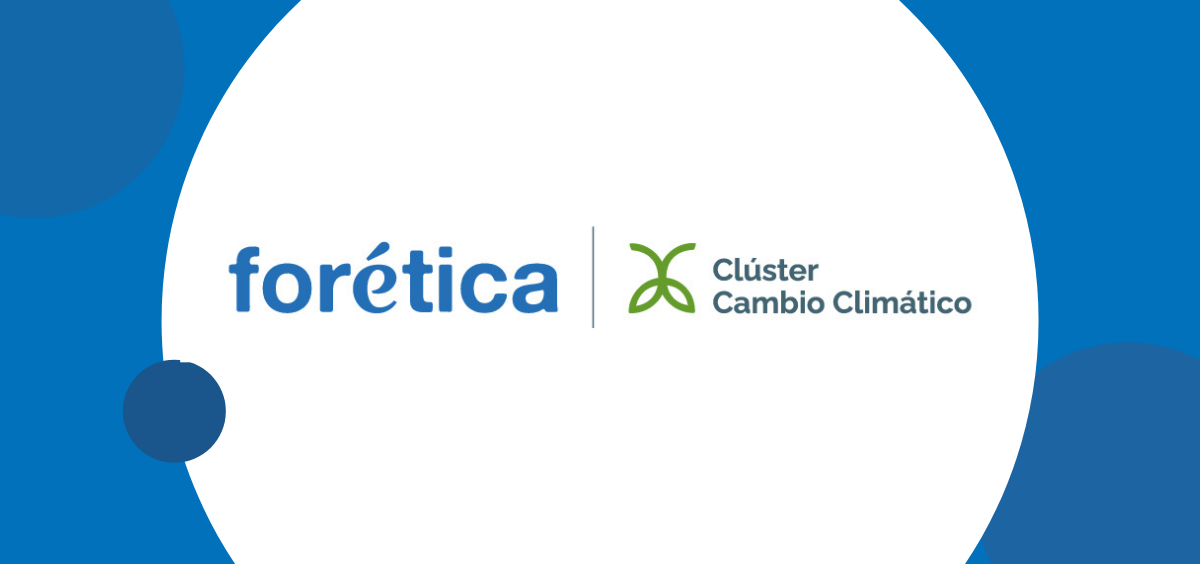

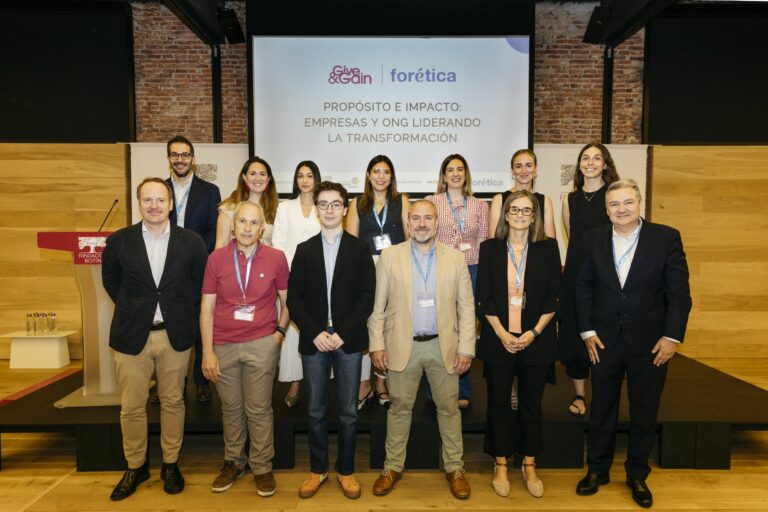

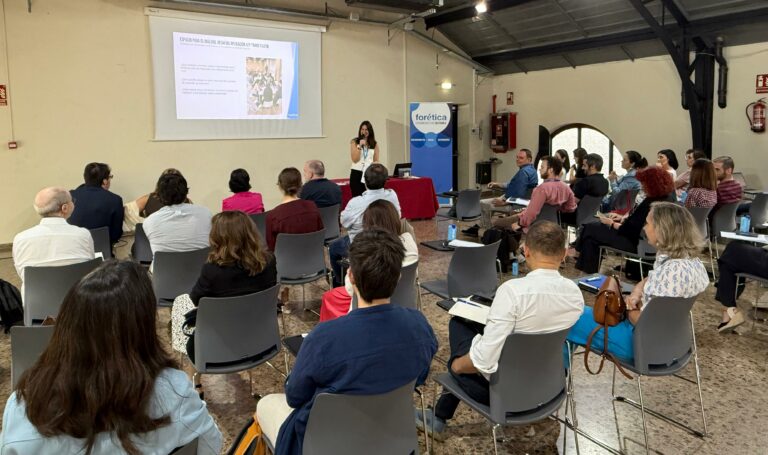
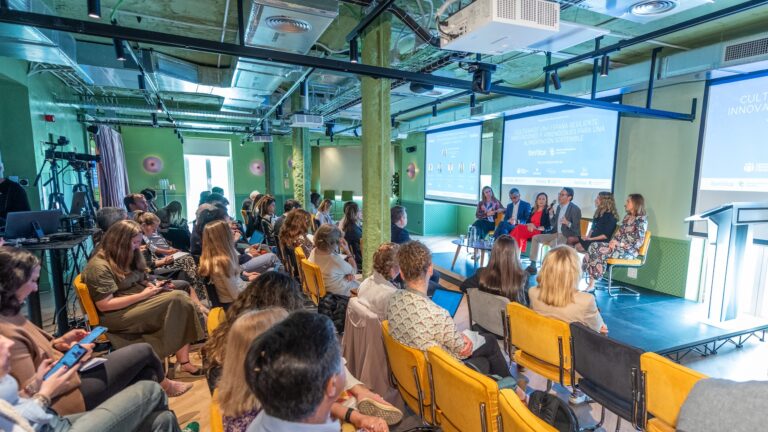
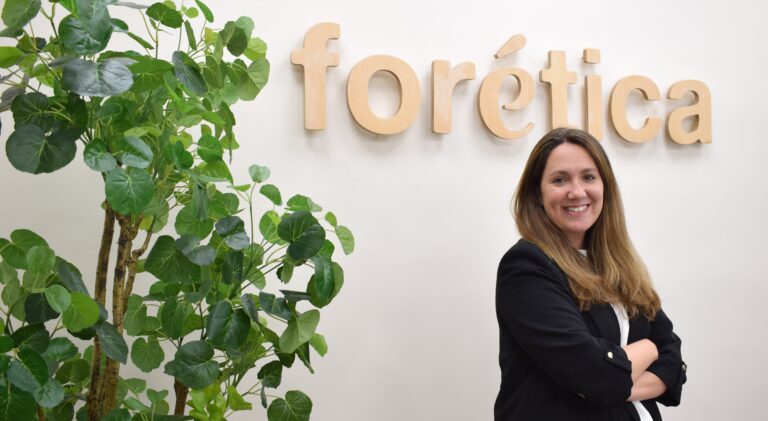
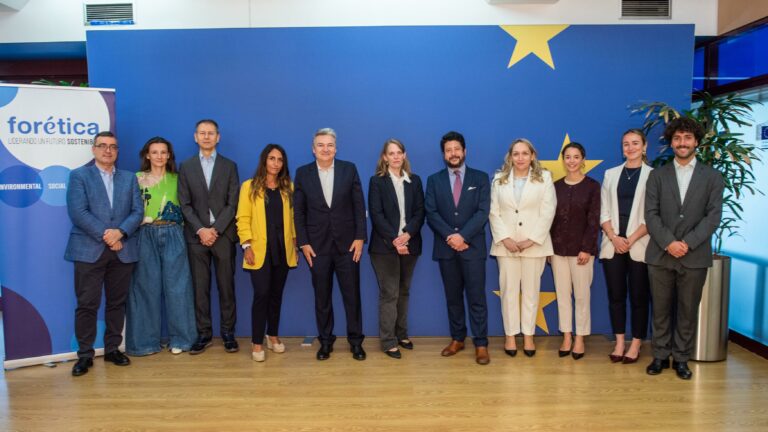
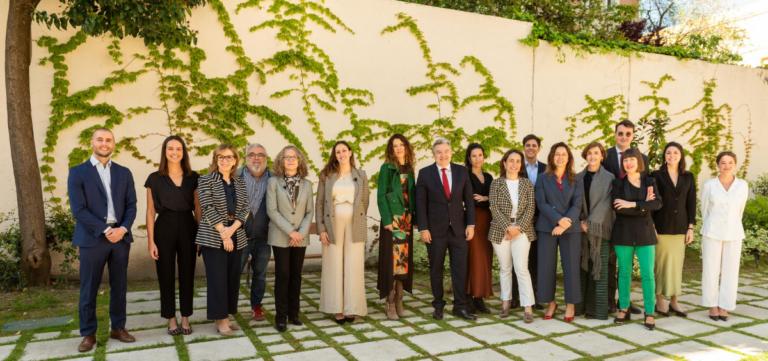
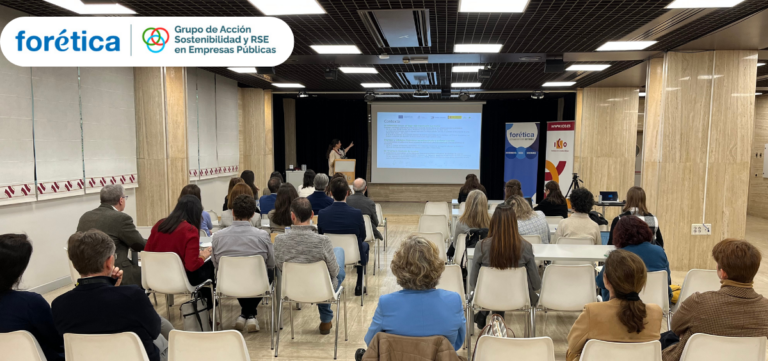
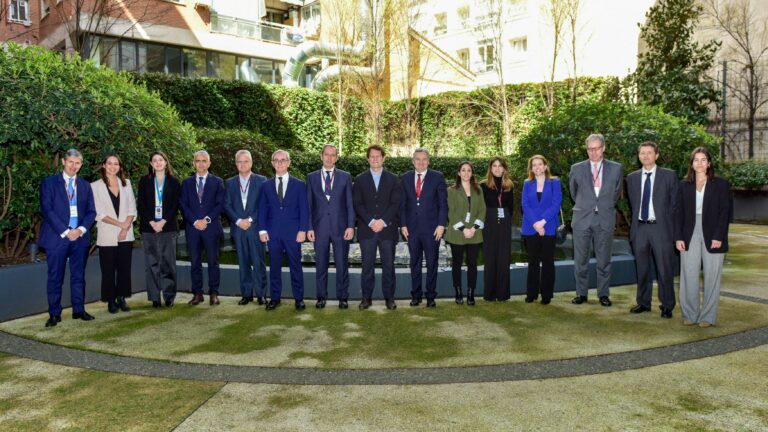


Déjanos tu comentario